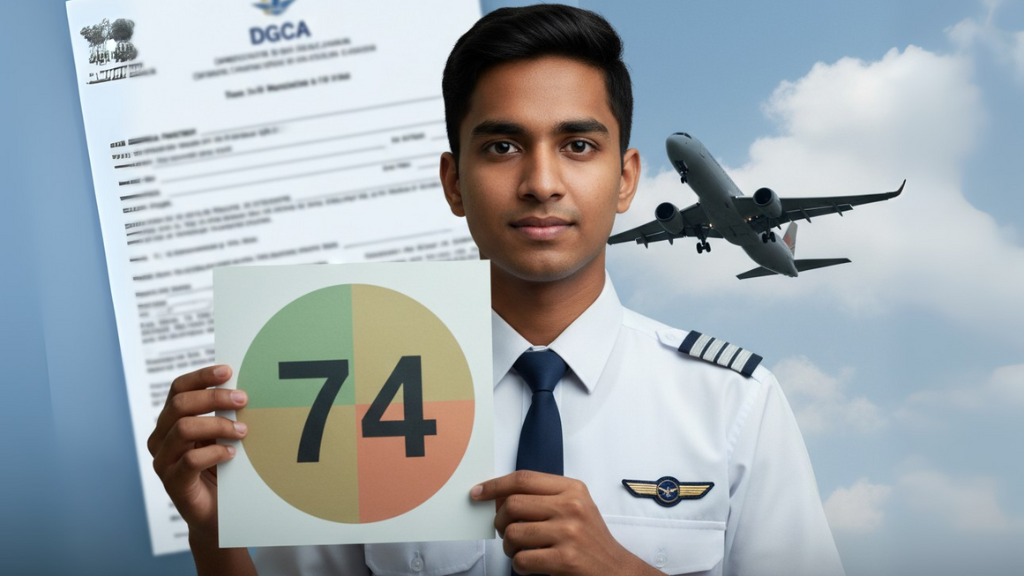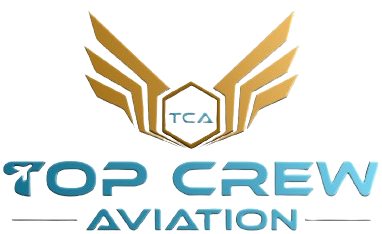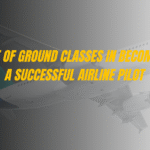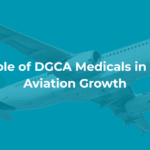
Becoming a pilot is a dream for many young aviation enthusiasts, but before entering the cockpit, one must pass the DGCA Medical examination. The Directorate General of Civil Aviation (DGCA) in India ensures that every pilot meets strict medical standards to guarantee the safety of passengers and crew. One of the most common questions asked by aspiring pilots is: Can color blind students clear DGCA Medical?
In this detailed guide, we will break down the role of vision in aviation, DGCA’s requirements, and whether color blindness can be a roadblock for your aviation career.
Understanding DGCA Medical Requirements
The DGCA Medical is mandatory for all aspiring pilots in India who wish to obtain a Student Pilot License (SPL), Private Pilot License (PPL), or Commercial Pilot License (CPL). It ensures that pilots are physically and mentally fit to operate an aircraft safely.
The DGCA conducts two levels of medical exams:
- Class 2 DGCA Medical – Required to apply for SPL or PPL.
- Class 1 DGCA Medical – Mandatory for obtaining a CPL and becoming a commercial airline pilot.
Both levels include vision checks, ENT evaluations, general physical examination, and psychological assessments.
Importance of Vision in Aviation
Vision plays a critical role in a pilot’s duties. From identifying runway lights to reading cockpit instruments, recognizing warning signals, and communicating with air traffic control, eyesight is central to aviation safety.
This is why DGCA Medical standards are very strict about eye health, including visual acuity and color perception.
Color Blindness and DGCA Medical
Color blindness, also known as color vision deficiency, affects the ability to distinguish between certain colors—most commonly red and green. Since aviation relies heavily on color-coded signals (runway lights, navigation lights, cockpit indicators, etc.), the DGCA considers proper color vision essential for safe flying.
During the DGCA Medical, students undergo specific tests to evaluate color perception. The most common are:
- Ishihara Test – A standard book of color plates that identify color vision deficiencies.
- Lantern Test (if required) – Used to assess how well an applicant can recognize aviation-related light signals.
If a student fails the Ishihara test, further tests may be recommended.
Can Color Blind Students Clear DGCA Medical?
In most cases, students with color blindness do not clear DGCA Medical Class 1. This is because aviation requires precise recognition of red, green, and amber signals in both daytime and nighttime conditions.
However, not all forms of color blindness are equally severe. Some students with mild deficiencies may pass additional vision tests, depending on the level of deficiency and DGCA’s assessment.
Unfortunately, candidates with significant color vision issues are declared unfit for pilot licenses.
Career Alternatives for Color Blind Students in Aviation
Even if a student cannot clear DGCA Medical due to color blindness, their aviation dream does not have to end. There are many alternative career opportunities in aviation that do not require perfect color vision, such as:
- Aircraft Maintenance Engineering (AME)
- Aviation Management
- Air Traffic Services (non-tower roles)
- Aviation Safety & Compliance
- Airport Operations & Ground Handling
At TOP Crew Aviation Academy, we guide students toward the right career path based on their medical eligibility and interests, ensuring they remain connected to the aviation industry.
How to Prepare for DGCA Medical as a Student
- Get an Eye Checkup Early – Visit an aviation medical examiner before starting your pilot training journey.
- Understand DGCA Medical Standards – Familiarize yourself with vision, hearing, and overall health requirements.
- Consult Aviation Experts – Institutions like TOP Crew Aviation Academy provide complete guidance for aspiring pilots regarding medicals, DGCA exams, and career planning.
- Explore Alternatives – If you have color blindness, explore parallel aviation career options that suit your skills.
DGCA Medical: Myths vs Facts
- Myth: Mild color blindness is acceptable for a pilot’s career. Fact: Even mild cases often disqualify candidates due to safety standards.
- Myth: Passing Class 2 automatically guarantees Class 1 clearance. Fact: Class 1 is more stringent, especially for vision and color perception.
- Myth: If declared unfit, there’s no scope in aviation. Fact: Aviation offers multiple rewarding careers beyond flying.
Why Choose TOP Crew Aviation Academy?
At TOP Crew Aviation Academy, we don’t just prepare students for flying; we prepare them for the aviation industry as a whole. Our experts provide:
- Guidance for clearing DGCA Medical examinations.
- Transparent counseling about medical standards.
- Support for students exploring alternative aviation careers.
- Complete pilot training from SPL to CPL.
We ensure that every student, regardless of medical conditions, finds their rightful place in aviation.
Conclusion
So, can color blind students clear DGCA Medical? The straightforward answer is: in most cases, no. Since aviation depends heavily on accurate color perception, students with color blindness usually cannot pass DGCA Class 1 Medical, which is mandatory for a pilot career.
However, aviation is a vast industry, and there are many ways to be part of it even without flying. With proper guidance from institutions like TOP Crew Aviation Academy, students can still build a successful future in aviation.
Frequently Asked Questions
Is color blindness a disqualification for DGCA Medical?
Yes, most students with color blindness are declared unfit for pilot licenses under DGCA Medical standards.
Can mild color blindness be accepted in DGCA Medical?
Only in rare cases with borderline results, but usually DGCA does not permit it.
Which test is used for color vision in DGCA Medical?
The Ishihara Test is the most common, sometimes followed by Lantern Test.
Can I become a pilot in India if I’m color blind?
No, color blindness is a disqualification for commercial and private pilot licenses.
What are alternative careers in aviation for color blind students?
Aircraft Maintenance, Aviation Management, Safety, and Airport Operations are great options.



